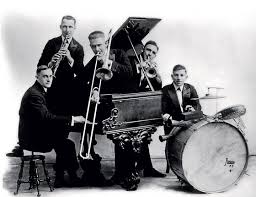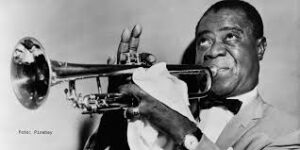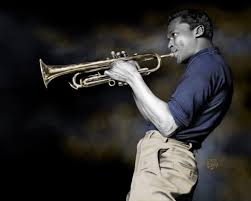 Emerging between the end of the 19th century and the beginning of the 20th century in New Orleans, USA. Jazz can be defined as a musical style that values improvisation. Jazz is therefore an artistic-musical manifestation that emerged in black communities at the end of the 19th century, originating from popular culture and the creativity of black communities who lived there in one of their most important development spaces.
Emerging between the end of the 19th century and the beginning of the 20th century in New Orleans, USA. Jazz can be defined as a musical style that values improvisation. Jazz is therefore an artistic-musical manifestation that emerged in black communities at the end of the 19th century, originating from popular culture and the creativity of black communities who lived there in one of their most important development spaces.
Therefore, African culture was the main matrix for the emergence of jazz, which developed with the mixture of various religious traditions, in particular African-American.
THE RELATIONSHIP WITH BLUES
Directly from the Blues, Jazz appropriated the famous “blue note”, a semi-toned note, a characteristic that brought a more melancholy feel to the music. With the abolition of slavery in the USA in 1863, these individuals were able, even if minimally, to be included in society.
 That was how, with a closer approach to Western instruments, a contribution of rhythms, cultures and sounds emerged. At this time, Blues, which was already loaded with black origins, became one of the main foundations of jazz, which inherited an inference from black religious meetings, as in the case of churches mostly attended by African-Americans, whose audience participation was, and it is still, nowadays, fundamental to the way musicians play. Hand and foot tapping, and even vocalizations, reverberated from improvised solos to chord timing.
That was how, with a closer approach to Western instruments, a contribution of rhythms, cultures and sounds emerged. At this time, Blues, which was already loaded with black origins, became one of the main foundations of jazz, which inherited an inference from black religious meetings, as in the case of churches mostly attended by African-Americans, whose audience participation was, and it is still, nowadays, fundamental to the way musicians play. Hand and foot tapping, and even vocalizations, reverberated from improvised solos to chord timing.
The creation of Prohibition, which prohibited the sale and consumption of alcohol in the USA and was in force between 1920 and 1930, resulted in the appearance of “Speakeasies”, spaces especially dedicated to the illegal sale of alcoholic beverages and, consequently, to music.
 Such establishments were essential to the propagation of jazz, which, as a result, gained a stereotype of immoral style. However, even so, it was during this same period that Jazz became popular in different parts of the country, even gaining space among members of the American elite; rather, much more averse to any creation that involved blackness.
Such establishments were essential to the propagation of jazz, which, as a result, gained a stereotype of immoral style. However, even so, it was during this same period that Jazz became popular in different parts of the country, even gaining space among members of the American elite; rather, much more averse to any creation that involved blackness.
After World War I, the potential of jazz was realized; which was finally introduced to the show business industry, with cinema, radio, theater and concerts coming to have a strong presence of the musical style. In addition, a major responsible for the popularization of jazz was the record industry, turning stereos into the main household artifacts of Americans.
Chicago and New York, in turn, appeared as important receptors and diffusers of music to the rest of the country. The audience consisted of spectators, potential musicians and black migrants in search of better living conditions. Among them, the trumpet players Louis Armstrong and Bix Beiderbeck and the pianist Fletcher Herderson, avant-garde in the field who brought jazz to American culture.
TYPES OF JAZZ
Emerged in the 30s, swing and big bands are the first prominent jazz styles. Bebop and Hard bop are more “radical” jazz styles, with more complex and faster sounds. Besides these, there is Cool Jazz and Soul Jazz.